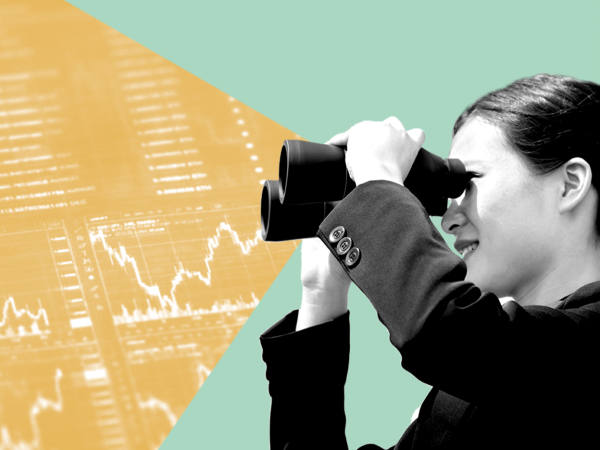One of these is momentum. Think about what happens when a company releases some bad news. Fully rational investors would immediately update their opinion of the company, causing the share price to fall sharply. If, however, some investors are overconfident about their prior belief that the company was good, this updating will be only partial, because those investors will cleave to their opinion and so won't sell; in fact, they might even regard selling by others as a buying opportunity. This might cause the share not to fall sufficiently to reflect the bad news. It will therefore be overpriced, and so will fall later as the truth gradually dawns - or suddenly so if further profit warnings are given. This is consistent with what has happened this year to Rolls-Royce.
A similar process happens in reverse if good news is released. In both cases, investors' overconfidence about their prior beliefs leads to share prices underreacting, with the result that price falls lead to further falls and rises to further rises.
This helps explain an otherwise curious fact - that momentum tends to do better in normal markets than in bear ones. Bull markets tend to increase overconfidence as investors mistake luck for talent, thus exacerbating momentum. Bear markets tend to reduce overconfidence and hence momentum effects.
What'’s more, say Messers Hirshleifer and Daniel, overconfidence can also help explain why defensive stocks do better than they should. Risky companies are more likely to be the object of overconfidence than safer ones; you can more easily convince yourself that a small biotech stock will soar in price than that GlaxoSmithKline will. This effect is magnified by the fact that overconfidence causes investors to underestimate the extent to which growth is genuinely unpredictable. This leads investors to pay too much for risky growth stocks and too little for duller safer ones. The upshot is that defensives tend to be underpriced and so deliver higher average returns.
You might think that all this means that overconfidence causes stock markets to be inefficient.
Not necessarily. Investors who are overconfident about their ability to spot underpriced stocks will spend more time researching companies and buying stocks they believe to be underpriced. This investment in price discovery will often help prices converge towards their fundamentals. By contrast, if everyone were underconfident we'd all invest in tracker funds and so markets would be inefficient. On balance, it’s not at all clear that overconfidence reduces overall market efficiency.
Nor even is it clear that overconfidence loses us money overall. Overconfident investors are more likely than underconfident ones to invest in equities, and so benefit from the equity premium - the tendency for shares to outperform cash over time. And one reason why shares do so is that the economy grows. And it does so because companies invest and innovate, two things that are spurred by overconfidence.
Some irrationalities are not entirely bad things - which is one reason why they persist and are so widespread.










